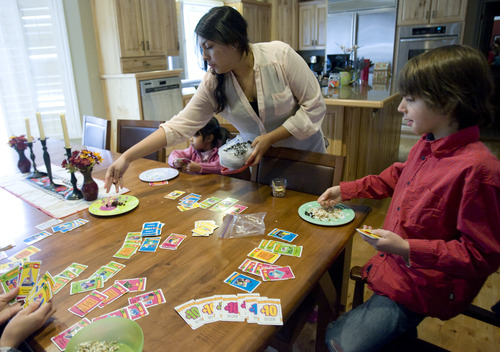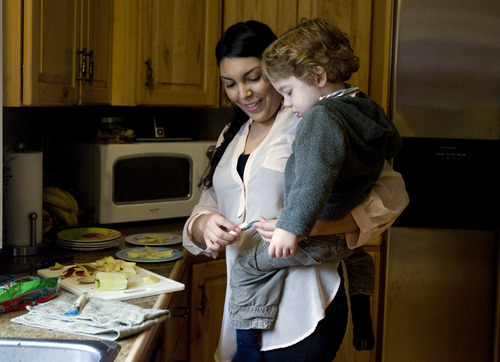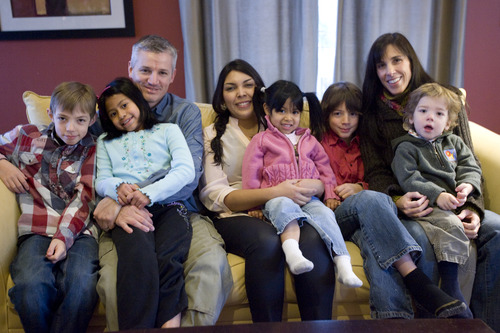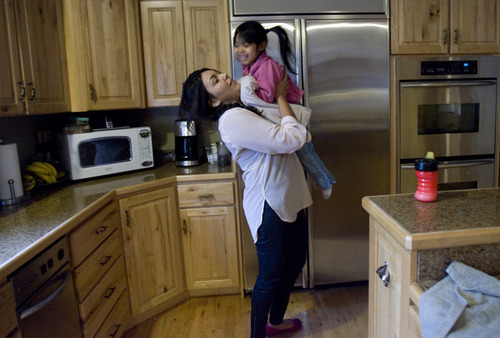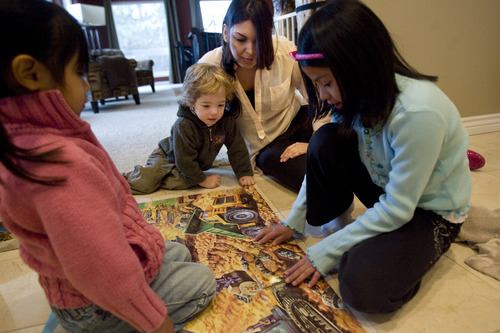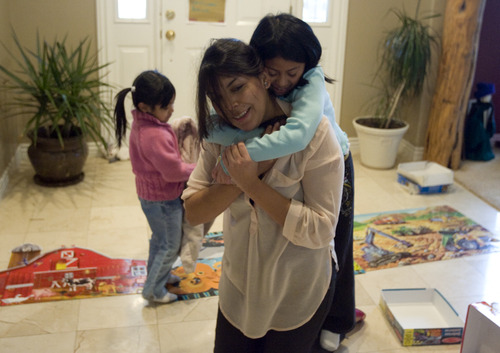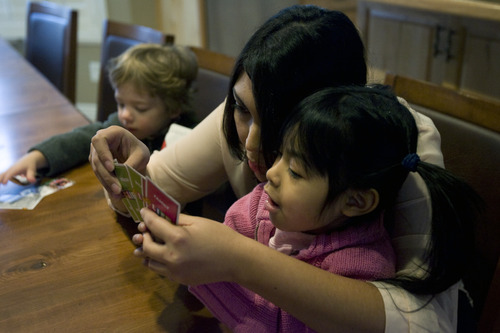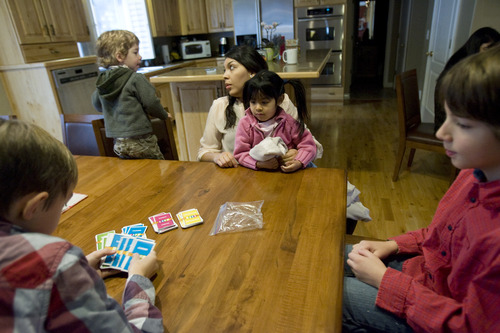This is an archived article that was published on sltrib.com in 2013, and information in the article may be outdated. It is provided only for personal research purposes and may not be reprinted.
The DenBleykers needed help.
Home schooling five children was a big challenge, in and of itself, for Jeffrey and Jennifer DenBleyker of South Jordan, particularly with the youngest being a toddler. And because two of their daughters were adopted from Guatemala, and the family is trying to adopt a third girl from that Central American country, the DenBleykers wanted that educational experience to include exposure to Spanish language and culture.
With help from Murray-based Go Au Pair, Blanca Mercedes Eguizabal Alvarez came to the DenBleykers' rescue.
The 23-year-old from El Salvador moved into the DenBleykers' home in December 2011 and recently re-upped to spend a second year.
"We're pleased with the way she's blended into our household," said Jeffrey, a civil engineer with CH2M Hill. "Blanca's significantly older than our kids, so my wife and I see her as an older daughter. The bond she has developed with our kids has surprised us in a positive way."
Added Jennifer, who bore most of the teaching responsibilities as well as shuttling kids to programs: "Bringing someone in who spoke Spanish and could teach [the kids] took the pressure valve off me. It made me feel like I could still have time with the younger ones, but they weren't taking up the whole day."
The DenBleykers are representative of many families who turn to Go Au Pair eager to bring in a foreigner to provide live-in child-care help, said the agency's managing director, Tanna Wilson.
"A lot of families are hesitant to try it because it is live-in. But once they try it, they like it," said Wilson, noting that Go Au Pair is one of only 13 agencies licensed by the U.S. State Department to bring young adults into the country for a cultural exchange and the child-care jobs.
The agency works with prospective au pairs from 50 countries — China, Germany and South Africa are the most common — and helps them to get work visas.
Go Au Pair does background checks on the would-be nannies and the host families. After a match is made, Wilson said her agency also provides training in child-care development, safety and American culture, visits the au pairs monthly, gets them together for activities and pays their medical insurance.
Families are required by the State Department to pay their au pairs $196.75 a week, she added, noting that at any given time, 10 to 20 Utah families have au pairs.
Participating in the program has exceeded Alvarez's expectations, too.
"Living with a family is important to me. It's not the same as living by yourself. I feel that warmth," she said, adding that the DenBleykers have been great hosts. "I love the kids and the kids love me. And the husband and wife, they are the best."
The experience has been more than just baby-sitting, said Alvarez, who hopes to become a civil engineer.
"This is my first job, but I think I can handle other jobs now," she said. "Kids are a huge, huge responsibility, and I've learned how to deal with many situations. I've learned how to be responsible."
Twitter: @sltribmikeg —
Go Au Pair
O More information about the agency and securing a foreign worker to provide live-in child care services may be found at http://www.goaupair.com.


